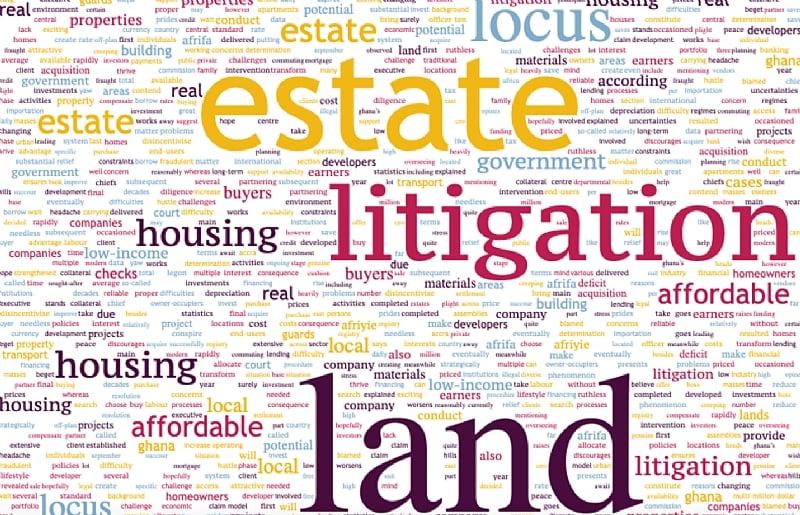Acquiring land in Ghana is a multifaceted process demanding meticulous due diligence, legal expertise, and thorough ownership verification, unlike a simple market transaction. Engaging a lawyer from the outset is crucial to navigate the complexities of land acquisition and mitigate potential risks. This proactive approach can prevent costly legal battles and financial losses in the long run. The case of a client who initially declined legal counsel, only to face ownership disputes after paying the full purchase price, underscores the importance of legal guidance. This client ultimately incurred double the initial legal fees to resolve the legal entanglement, highlighting the false economy of bypassing legal expertise in land transactions.
A lawyer’s role in a land purchase begins with preliminary inquiries and searches to establish rightful ownership. Ghana’s legal framework dictates that all land is owned, whether by a stool, clan, family, individual, or the state. Understanding these ownership structures and the legal capacity of the seller is paramount. This involves verifying the seller’s identity and ensuring they have the legal authority to sell the land. Misrepresentation and fraudulent activities by individuals posing as agents are common pitfalls that legal counsel can help avoid. Verification extends beyond identification documents and involves on-site inquiries with neighbors to confirm the seller’s claim.
The seller’s duty to prove good title is a critical aspect of the process. For registered lands, this involves presenting the land title certificate and a search report from the Lands Commission, complete with a site plan. For unregistered lands, an abstract of title summarizing all relevant documents and events establishing ownership is required. The lawyer’s role here is to meticulously evaluate these documents, ensuring consistency between the site plan and the instrument granting title (conveyance, lease, assignment, or will). Determining the duration of interest in the land is also crucial, dispelling the common misconception of a uniform 99-year leasehold. The lawyer examines the headlease, the primary agreement between the seller and the original lessor, to ascertain the remaining lease period and protect the buyer from unknowingly acquiring a short-term lease.
Accompanying a licensed surveyor to the land is an essential step, even if the seller provides a site plan. This independent verification of the land’s coordinates allows for the generation of a new site plan, mitigating potential discrepancies arising from surveying errors, outdated information, or fraud. The site plan serves as a cornerstone document for legal due diligence. Furthermore, official searches at relevant government agencies are vital. These include the Lands Commission for land and deed registration records, Town and Country Planning for zoning regulations, the Bank of Ghana’s Collateral Registry for mortgage information, and the courts for litigation searches.
Conducting a thorough litigation search in the courts with jurisdiction over the land is particularly crucial. This search reveals any pending litigation involving the purported owner, protecting the buyer from inheriting legal disputes. The search should extend to appellate courts as land cases often progress through multiple levels of the judicial system. A search limited to the Lands Commission may not reveal ongoing litigation that could overturn ownership claims. This comprehensive approach protects the buyer from unforeseen legal battles and ensures a secure investment.
Before finalizing the purchase, a sale and purchase agreement is drawn up. This legally binding agreement outlines the terms of the sale, including payment timelines, document preparation, and vacant possession. It protects both buyer and seller, preventing either party from withdrawing without consequences. A deposit, typically a percentage of the purchase price, is usually paid at this stage. Upon full payment, the seller’s lawyer prepares and executes the title deeds or conveyance instrument, witnessed by at least one person. Each party receives a copy, and the sale and purchase agreement expires. Post-completion, the buyer’s lawyer oversees the execution and stamping of the oath of proof and certificate of proof, followed by submission to the Lands Commission for stamp duty assessment and registration. This meticulous process ensures the legal validity and security of the land transaction, safeguarding the buyer’s investment.
In conclusion, acquiring land in Ghana is a complex undertaking requiring expert legal guidance. Engaging a lawyer from the outset provides a proactive approach to due diligence, ownership verification, and risk mitigation. This proactive approach protects the buyer from potential legal challenges and financial losses. The steps outlined above, from preliminary searches to post-completion registration, provide a comprehensive framework for navigating the intricacies of land acquisition in Ghana. By following these steps, buyers can ensure a secure and legally sound investment, avoiding the pitfalls that can arise from attempting to navigate this complex process without professional legal assistance. The peace of mind and security afforded by legal counsel far outweigh the initial cost, ensuring a smooth and legally sound land acquisition process.


